Nicky Riley (@Nicky_Riley) is Programme Manager at University of the Arts London. She manages university timetabling initiative and recently organised a LEGO SERIOUS PLAY assisted workshop, which was facilitated by Sean Blair from ProMeet. This LEGO SERIOUS PLAY case study describing their workshop was originally published in her blog.
Academic and Timetabling colleagues at LCC used Lego Serious Play to explore the complex system that is timetabling last week. Using Lego to build models and share understanding of timetabling from different perspectives, the group explored what is and isn’t working in relation to timetabling and what we could be doing better.
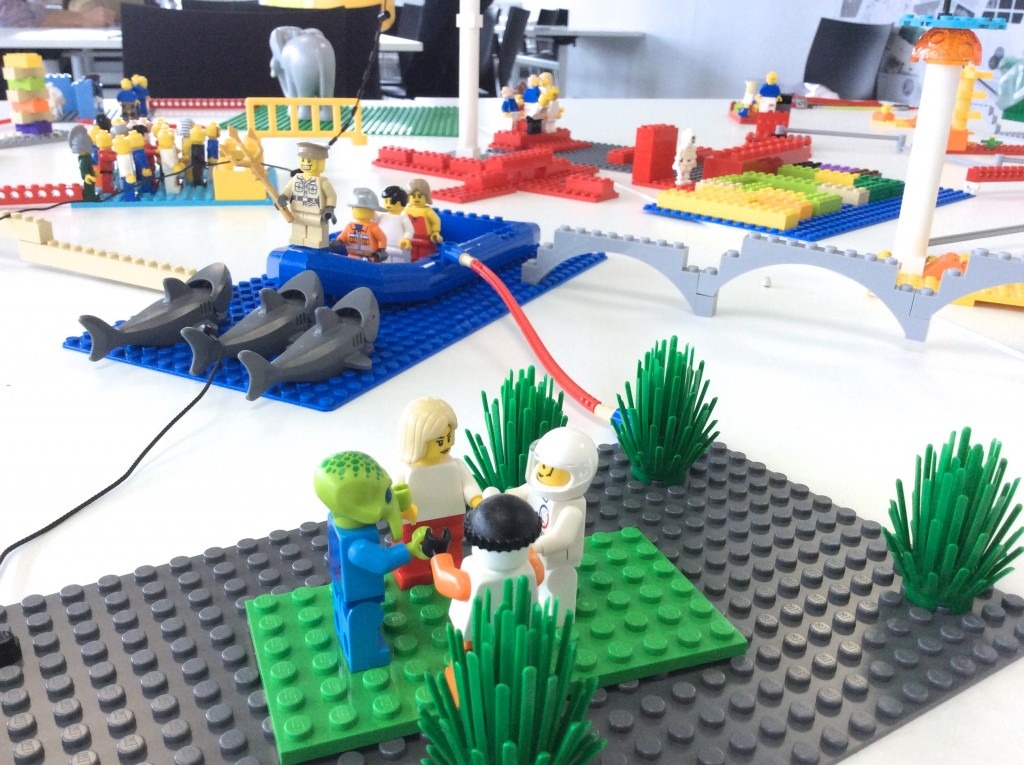
Image: Collaboration & innovative course delivery works!
This session highlighted a number of key areas for improvement including:
- joining everything together better (processes around course planning and delivery are not aligned and make lives difficult for everyone)
- making better decisions (management decisions don’t seem to take into account the reality of delivering course timetables and timetabling teams aren’t involved in crucial learning space discussions and decisions)
- working together better (timetabling works best when people work collaboratively)
- improving student experiences (student experiences are inconsistent)
- encouraging innovation and improvement (timetabling does not support risk-taking and innovation but this is needed to make better use of space)
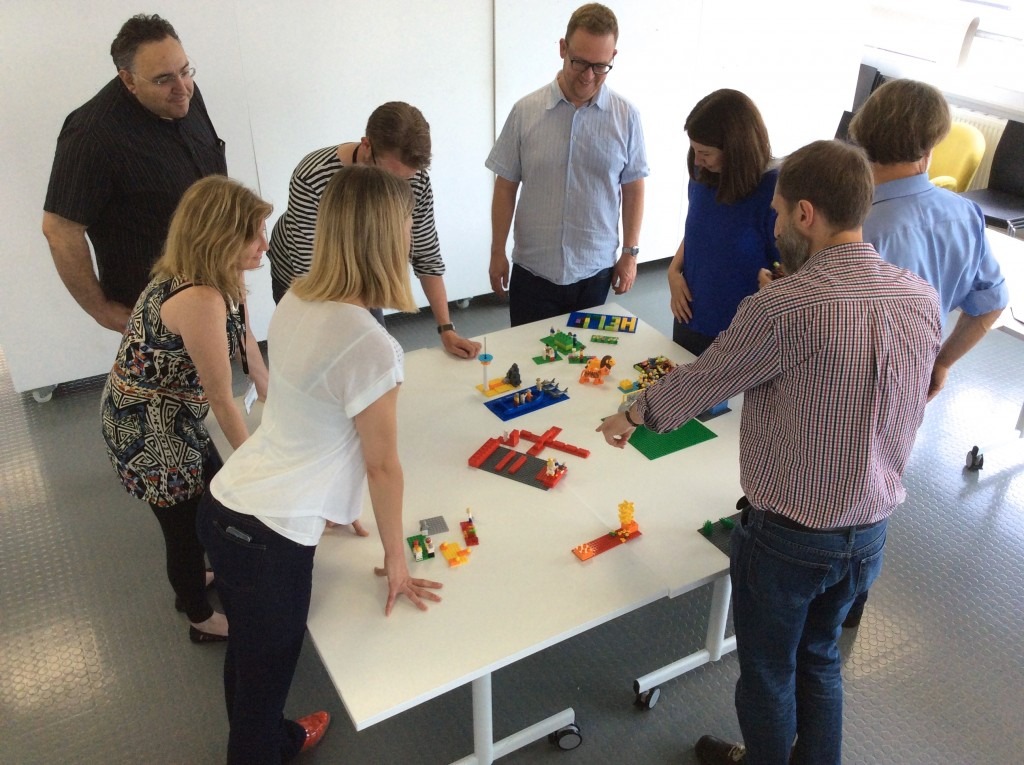
Image: Timetabling in Lego
The great thing about Lego Serious Play in this context was that it allowed the group to have an adult conversation about the timetabling system without judgement or blame on individuals or groups of staff. The group remained focused on exploring the issues and employing creative problem solving to identify areas for improvement. The group was also unanimous on one thing – the main success factor behind timetabling is the people! The effective and helpful timetabling team and their collaborative work with course teams and students was highlighted during the workshop as something that works well and should not be changed.
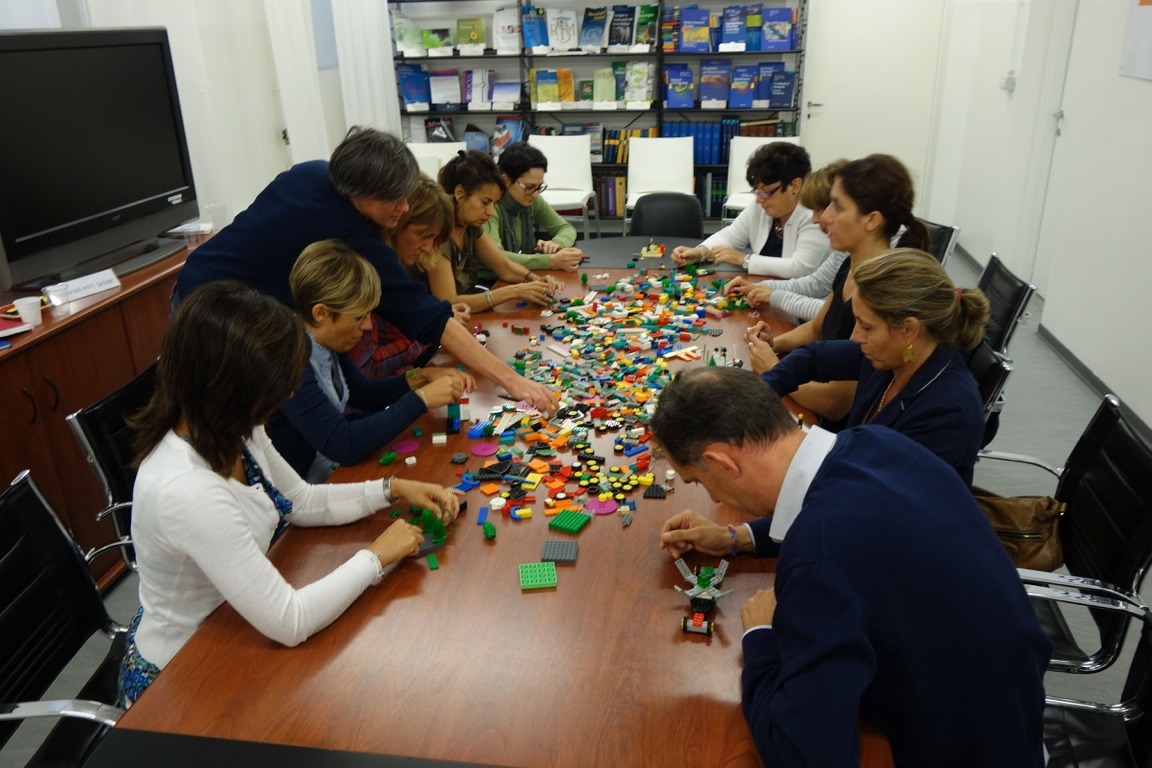


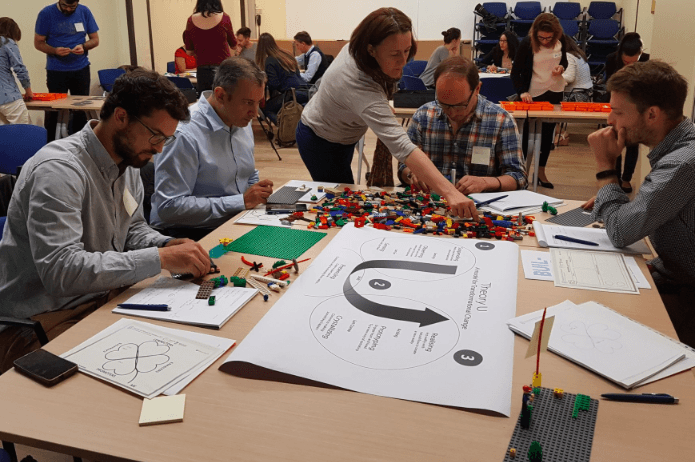
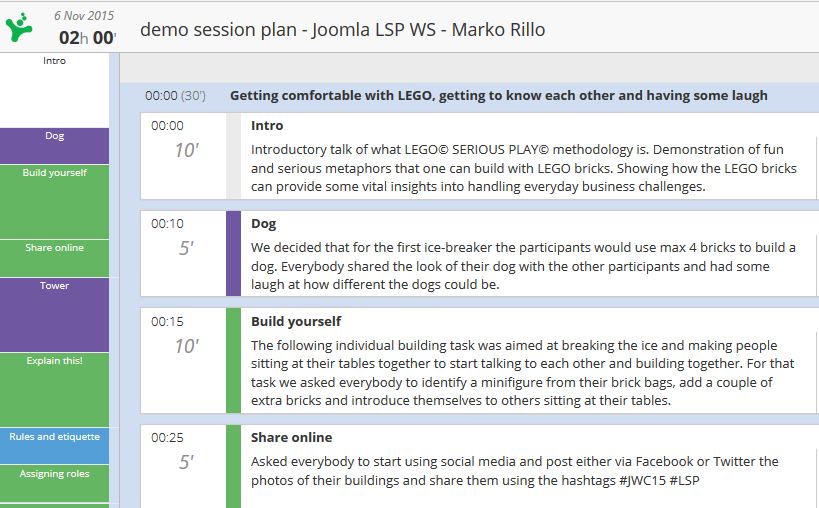

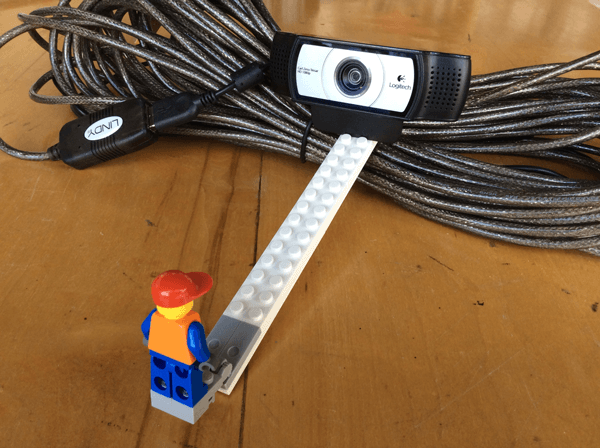
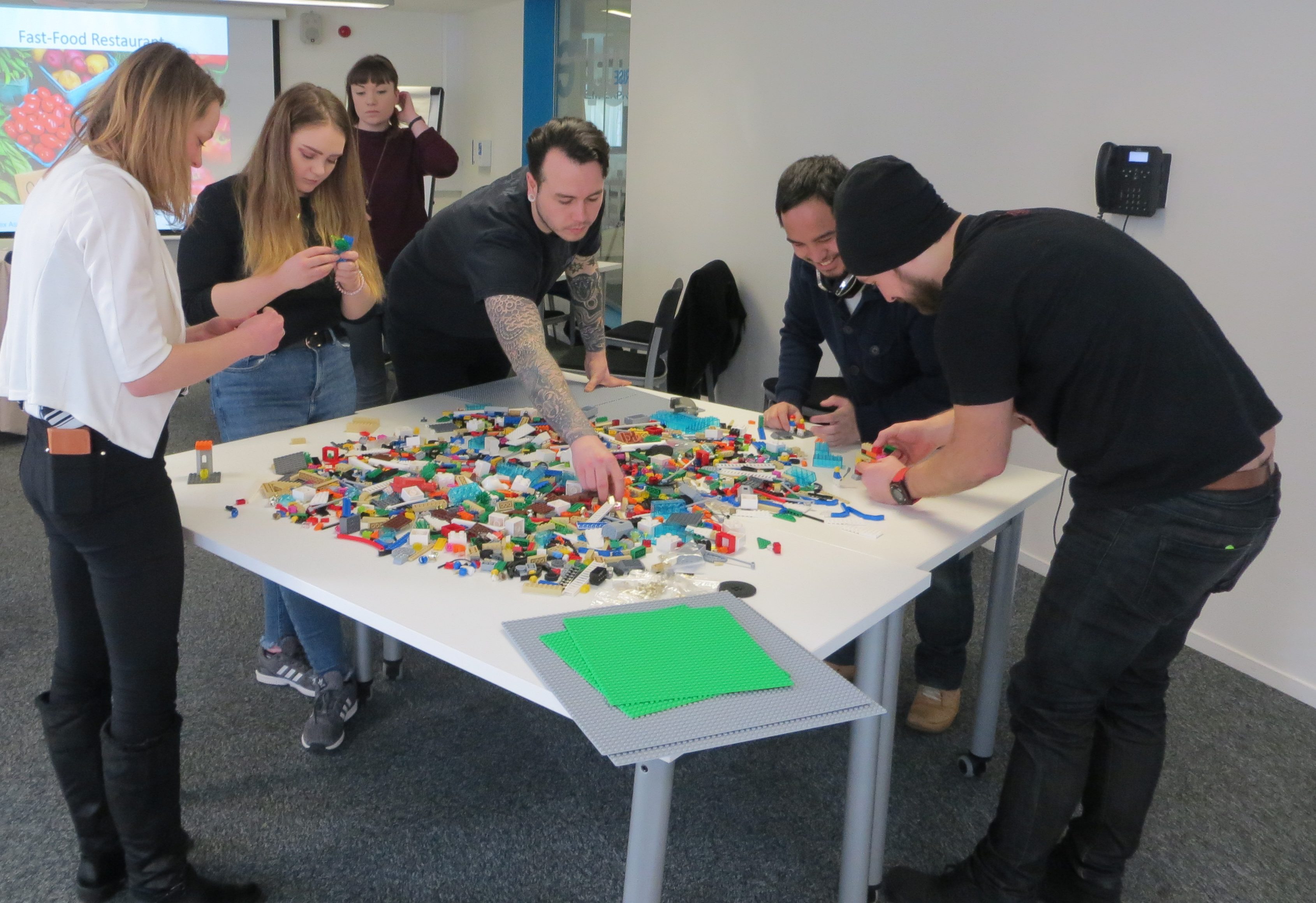
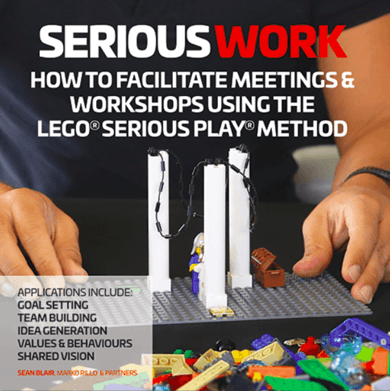
 Become a LEGO Serious Play facilitator - check one of the upcoming training events!
Become a LEGO Serious Play facilitator - check one of the upcoming training events!